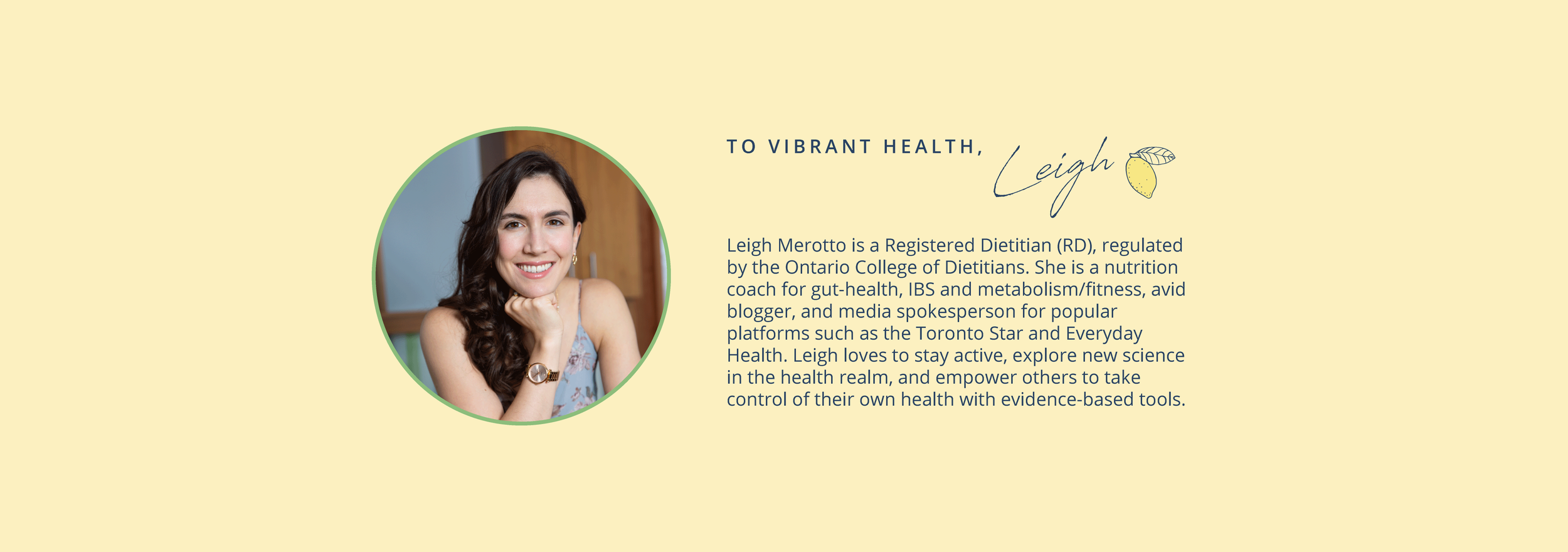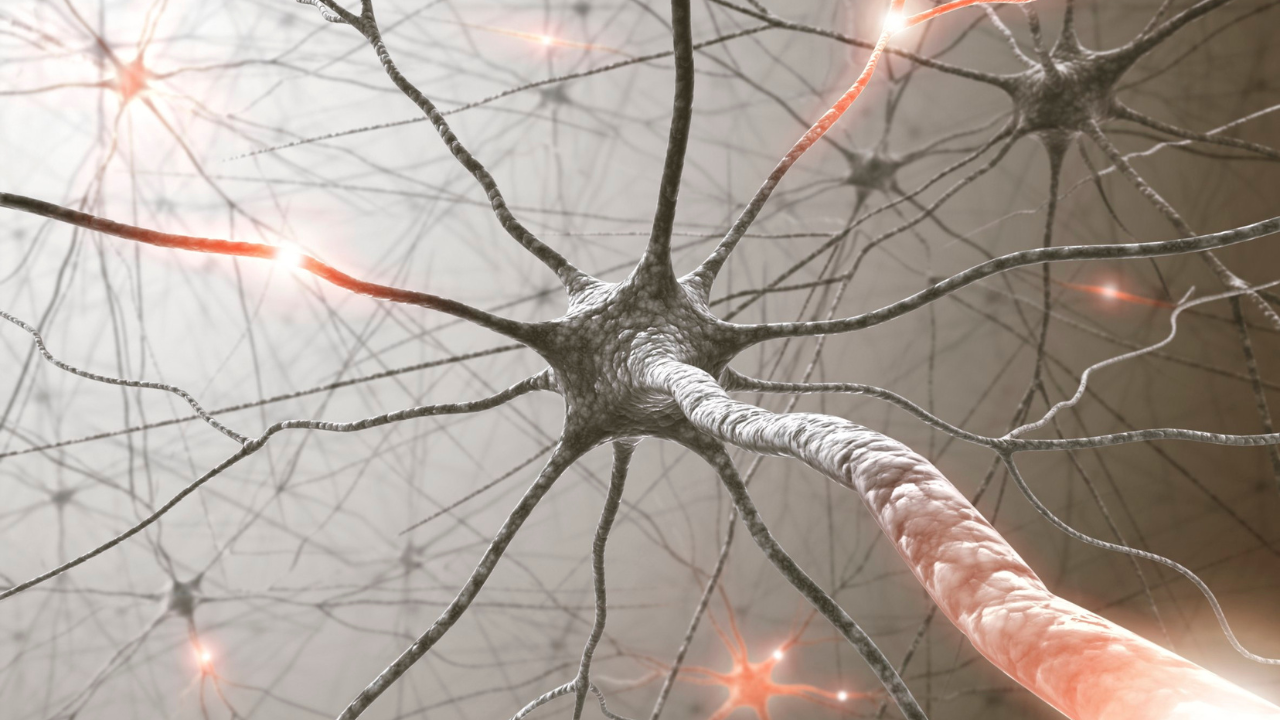Vagus Nerve: Its Role in IBS and SIBO and How to Improve Function for Better Digestive Health
Want to know a secret to improving your digestion and easing your IBS/SIBO symptoms without resorting to cutting out more foods or spending a fortune on pricey supplements? The answer might just lie in boosting your vagal nerve tone!
You see, when it comes to gut health, it's not just about the food we eat. Our stress levels, nervous system, and the connection between our gut and brain all play a vital role in the well-being of our digestive system.
Understanding the Vagus Nerve
Did you know that your gut is packed with 500 million neurons that are linked to your brain through nerves in your nervous system? Pretty amazing, right? Well, the vagus nerve is one of the major nerves responsible for connecting your gut and brain. It's like a highway of communication, sending signals back and forth.
The vagus nerve has some important jobs. It's involved in sensory functions, translating information from your senses (like taste, smell, sight, and sound) to your brain. But it also controls the movement of muscles and glands essential for digestion. Think of it as the conductor of your ‘digestive orchestra’!
This incredible nerve does so much more than just digestion. It also plays a role in heart rate, breathing, cardiovascular activity, reflex actions, and even the balance of hormones and immune responses in your body.
When it comes to digestion, the vagus nerve is a big player. It stimulates contractions in your digestive tract, helping move food along smoothly. So, if your vagal nerve tone is healthy and strong, your digestion is likely to much more efficient as well.
Vagus Nerve & IBS
IBS is often triggered by stress, and poor vagal nerve function is associated with this condition. Healthy vagal nerves aid in stress recovery and enhance physiological and psychological flexibility. Research suggests a link between low parasympathetic tone (controlled by the vagus nerve) in IBS patients and elevated epinephrine levels, indicating a stress response. Prioritizing vagal nerve health can, therefore, help alleviate IBS symptoms!
Furthermore, the vagus nerve's impact on IBS extends to the regulation of appetite and food intake. Studies have indicated that individuals with IBS often experience disruptions in the balance of hunger and fullness cues, which can lead to overeating or erratic eating patterns. This imbalance is associated with alterations in two important hormones: leptin and ghrelin. Leptin, known as the "fullness hormone," signals the body to stop eating and regulates fat storage. On the other hand, ghrelin, the "hunger hormone," stimulates food intake. The vagus nerve holds a connection to both of these hormones, with leptin receptors found in the vagus nerve itself. The vagal afferent system, which conveys signals from ghrelin, also plays a significant role.
Therefore, maintaining a healthy vagal nerve tone becomes crucial in ensuring adequate appetite regulation and preventing overeating, particularly in individuals with IBS who may be susceptible to triggering symptoms through excessive food consumption or irregular eating habits.
Vagus Nerve Connection to SIBO
SIBO, characterized by an abnormal increase in bacterial populations in the small intestine, is also believed to be connected to vagus nerve function. When we're stressed, our stomach acid levels decrease, leading to reduced bile secretion and enzyme production, creating an environment that favors SIBO. This is where the vagus nerve's ability to aid in stress recovery comes into play. By supporting stress recovery and gut-brain communication, the vagus nerve may help prevent and manage SIBO.
Significance of High Vagal Nerve Tone
So, why is it so important to have a healthy vagal nerve tone? Well, studies have shown that poor vagal tone is quite common in people with IBS, SIBO, and GERD. When your vagus nerve tone is low, it can result in changes in gut motility, disrupt the balance of your gut microbiome, and increase inflammation in your gut. Yikes!
But fear not, friend. By increasing your vagal tone, you activate the "rest and digest" mode of your body, allowing it to relax more effectively after stress. With regular practice, you can boost your vagal nerve tone and develop a healthier gut.
Ways to Boost Vagal Nerve Tone
How can we increase our vagal nerve tone? Well, there are several ways to activate our parasympathetic nervous system and improve our vagal nerve tone. Let's dive into some of them:
BREATHING EXERCISES:
Engaging in specific breathing exercises can stimulate the vagus nerve and relax your entire body. You can try techniques like diaphragmatic breathing, square or "box" breathing, or 3-2-4-2 breathing.
Give this one a shot: Inhale for 3 counts, hold for 2 counts, exhale for 4 counts, and hold for 2 counts before repeating. A longer exhale can help calm the nervous system.
If you need guidance, there are some fantastic apps like Headspace or Calm that offer guided breathing exercises, along with meditation and movement activities.
MASSAGES & SELF-MASSAGE:
Treat yourself to a massage from a registered massage therapist or indulge in some self-massage at home. Massages and self-massage techniques like foam rolling or doweling can increase vagal tone, heart rate variability, and decrease your "fight or flight" stress response.
You can try massaging your carotid sinus area using your hands or a gua sha stone designed for this purpose.
YOGA:
Yoga is a wonderful practice that triggers respiratory vagal nerve stimulation, promoting relaxation. With countless forms of yoga out there, find one that you enjoy and focus on being present.
Breathe deeply and expand your stomach as you move through the exercises. Pay attention to lengthening your exhales to stimulate the vagus nerve.
GENTLE MOVEMENT:
Engaging in gentle movement not only increases vagal nerve tone but also provides mental health benefits. Everyone's idea of gentle movement may differ, so choose something that feels good to your body and brings you joy.
It could be yoga, walking, pilates, barre exercises, stretching, or even doing household chores. Find an activity that relaxes you and makes you feel calm.
TAKING A COLD SHOWER/COLD EXPOSURE:
While more research is needed, some studies suggest that habitual cold exposure can enhance parasympathetic activity and decrease sympathetic activity. For example, a two-hour exposure to 10°C was found to enhance parasympathetic activity.
Taking a cold shower regularly may have similar effects on your vagal tone. It may shock your body initially, but it also forces you to breathe deeply and focus on your body, triggering the "resting" state of the parasympathetic nervous system. (Of course, make sure to check with your healthcare provider to ensure it's safe for you)
SINGING & LAUGHING:
Singing and laughing are not only fun but also beneficial for your vagal tone and positive emotions. Engaging in activities that create positive social connections, such as laughing with friends, watching comedic movies, or having a karaoke night, can improve your vagal tone and uplift your spirits.
Start your day with your favorite song or make it a habit to share a laugh with someone you care about.
MEDITATION:
Meditation is a fantastic relaxation technique that stimulates the vagus nerve. It increases your vagal tone, promotes positive emotions, and reduces your sympathetic stress response.
During meditation, focus on your breath, expand your stomach, and take a moment to be fully present.
Check in with your emotions and strive to be comfortable with whatever arises. Apps like Calm or YouTube offer guided meditations to help you get started, or you can try self-guided meditations using a timer app.
JOURNALING:
Journaling can strengthen your vagal nerve tone and counterbalance your fight or flight response to stress.
Try narrative expressive journaling for about twenty minutes a few times a week. This practice involves creating a meaningful narrative of your emotions, thought processes, and mental state over the past few days. It helps reduce stress, anxiety, anger, and inflammation while activating your relaxation response.
Aim to incorporate at least one stress-reducing activity into your daily routine and prioritize mindfulness. Eliminate distractions, release tension from your body, and fully immerse yourself in the chosen activity.
Conclusion
Remember, the vagus nerve is like a superhighway connecting your gut and brain. By keeping it in good shape, you can support optimal digestion, reduce stress impacts on your gut, and promote overall well-being. So, let's give a little love to our vagus nerve to enjoy freedom from IBS/ SIBO and a happier gut!
Want to support your gut brain connection through food & lifestyle changes to manage your IBS and SIBO? Learn more and apply for my 1-1 Gut Harmony Method Program Here.











